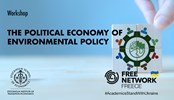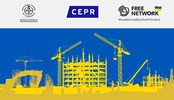SITE researchers Giancarlo Spagnolo and Theo Nyreröd discuss money laundering and whistleblowers at SNS
12 November, 2021
How does the fight against money laundering work? Are the regulations effective enough to detect and counter-strike money laundering? And what role can the whistleblower play in the fight against money laundering? Stockholm Institute of Transition Economics (SITE) researchers Giancarlo Spagnolo and Theo Nyreröd discussed money laundering and whistleblowers at SNS.
In a recent webinar organized by SNS, SITE researchers Giancarlo Spagnolo and Theo Nyreröd discussed money launderings effects on society and whether the EU should follow the United States’ lead by introducing whistleblower reward programs.
Money laundering enables criminals to enjoy the proceeds of crime, thus creating a basis for further illegal activities. Furthermore, it facilitates government corruption and plays an essential role in funding terrorist organizations
Giancarlo Spagnolo
Professor at SITE
During their presentation Giancarlo Spagnolo and Theo Nyreröd suggested that anti-money laundering efforts could become more effective by introducing a European whistleblower reward program and possibly by monitoring more strictly the use of non-disclosure agreements for employees as well as requiring longer cooling off periods during which staff members quitting regulatory agencies are not permitted to be recruited by any financial firm they have previously monitored.
Evidence suggests that whistleblower reward programs do increase the number of claims received by enforcement agencies and that these programs are cost-effective
Theo Nyreröd
Research Assistant at SITE
Learn more




